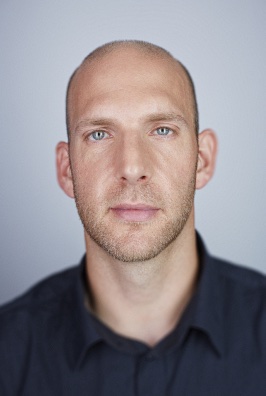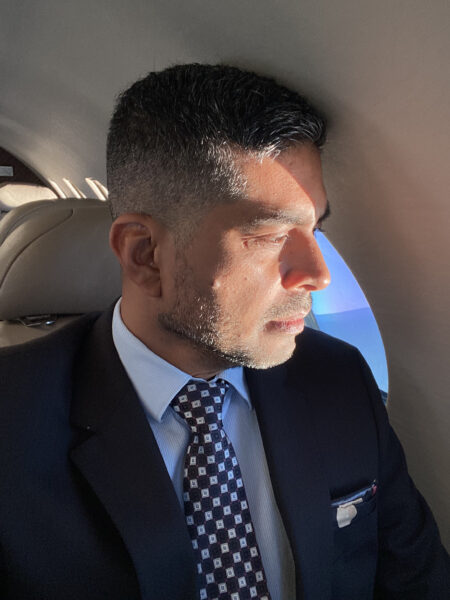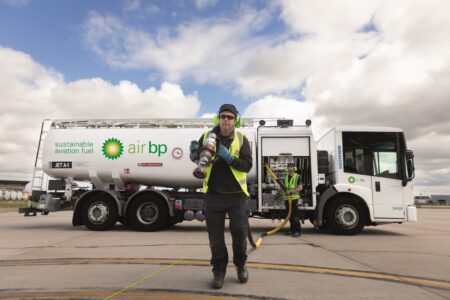Publicis Sapient provides strategy, experience and engineering services that helps companies with digital business transformation across several sectors, including aviation.
Nick Shay is the company’s head of travel and hospitality for its international markets and works with airports, airlines, aircraft operators, cruise operators and hospitality providers to implement digital business transformation.
What does Publicis Sapient do?
At Publicis Sapient, we help companies keep up with the pace of technological, societal and cultural change— all while meeting the ever-evolving demands and expectations of their customers. How? By elevating customer experiences, modernizing organizations and unlocking value through technology and data. By setting bold but achievable visions for digital transformation, we empower our business partners with true speed and agility.
Traditional business models are constantly being disrupted by changes in customer behaviours, technological change, new and adapting business models and societal change.
We help established companies in the digital era close the gap between what consumers expect and what traditional business models can deliver.
Digitalization represents a huge opportunity to innovate and we work with companies to help them take advantage of this and continue to be thriving businesses.
How does an aviation company become more digital?
First companies must realise that it’s not only about technology. This is about reconfiguring your business to be digital at the core, changing the way you think, organize, operate and behave to continuously identify and deliver value.
We often use a mnemonic to communicate the capabilities required to do this. SPEED – meaning Strategy, Product, Experience, Engineering and Data. The key thing to understand about SPEED is that these capabilities must continuously collaborate and interlink.
Most companies have some form of strategy function and some have a customer experience function, but all have a set of products and services that deliver value to their customers, whether they be B2C or B2B. The ability to evolve these and introduce new services lies at the heart of value identification and creation. And in the digital era Engineering and Data are always required.
Traditional business models often operate these capabilities in silos, whereas becoming more digital requires multi-disciplinary teams that bring them together.
What potential benefits are there for a business aviation company for digitalization?
The real opportunity is in unlocking value more for your business. This could be in the form of reaching more customers, enhancing their experience, deepening your relationships with them, launching new products and revenue streams, and crucially protecting existing revenue streams that are coming under threat from digital natives.

A great example of this is Jettly, a company that has taken the very slow, process driven and manual way of private jet bookings and modernized it. It is challenging the industry and saying this can be done better. We have seen this kind of transformation in other sectors such as the car and home insurance market that has become so dominated by digital aggregators. If you are a private broker and running a very manually centric business, then you are going to have to re-evaluate your use of digital.
Airports and FBOs are traditionally operational businesses whose income is largely indirect. Crucially operational efficiency goes hand in hand with reductions in passenger dwell time, limiting what additional products and services can be offered. Digital provides a mechanism to engage with passengers and their support teams far beyond the physical element of the journey itself.
But for many companies today digital business transformation isn’t just about passenger experience. Many firms are using digital business transformation to become much more efficient in their processes, applying digitalization to things like revenue management and operations and improving employee experience.
How would you work with a company that wants to for example, create a booking app?
We would start by taking a broader view of the current and target experience, the products and services offered and then establish where an app would fit in to ensure a seamless connected experience because we know that today people jump between different touchpoints, whether that be the phone (which one), the watch, desktop, etc.
We would look at this end to end from the front-end experience to the back-end systems and operations because a client selecting one feature in an app can initiate something that cascades throughout the whole business.
To facilitate this, we help different parts of a company work together – they cannot be operating in silos.
Is digital business transformation expensive?
Digital business transformation can be about expanding and creating new revenue streams or protecting what you already have. I’ve seen a lot of very large transformation programs over the last 20 years, but projects don’t all have to be large and expensive.
Companies should think more in terms of incremental changes for digital business transformation, it should be an ongoing, continuous process.
Where do you recommend starting with digital business transformation?
A lot of the time digital business transformation is about bringing together different parts of a business, so we often start from the top-down.
A first step for many companies is to recruit a consultant, marketing expert or a technologist. Publicis Sapient can offer all those things in one place, which enables us to ensure that changes are made on the ground as well as in management board rooms.
How do aviation companies avoid over-automation of client facing systems?
Technology should always enhance the passenger experience, not degrade. Many companies are already quite far away from the old idea that you see the same people welcoming you back into a lounge or onto an aircraft now. But equally you don’t want passengers to feel like they are dealing with robots.
We have seen in the budget airline industry a heavy use of automation and self-service that passengers have become accustomed to. There was an implicit agreement that self-service and lower prices went hand in hand. In the private aviation sector this is not necessarily the case, and the risk over-automation is there.
The answer I will give you is the same as before, start by understanding the needs of your various customer groups and work from there. For example, someone tasked with booking travel for an executive or celebrity might welcome more automation because doing things manually and over the phone takes time. For the executive themselves, they may welcome a more human touch, in which case the technology needs to empower the people that are providing it.
What technology do you think will change aviation soon?
Whilst electrification of planes maybe some way off, there is a lot of innovation happening today that we can all be excited about.
In this current climate with financial uncertainty and greater focus on the environment, I believe we will see increased focus on operational efficiency, whilst applying the lens that operations directly impacts the passenger experience. We have all had experiences of when air travel goes wrong.
Interestingly a lot of companies innovating today do not have a background in aviation, BUT they do understand big data, artificial intelligence and the cloud. Businesses that are brave and partner with these companies from outside of the sector may see the biggest wins.





